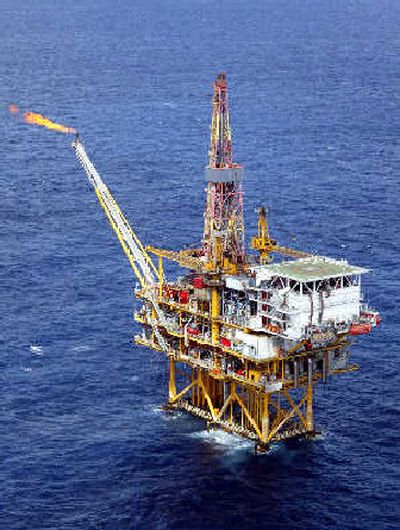Chinese oil company makes bid for Unocal

BEIJING — China’s third-largest oil producer made a hostile $18.5 billion bid Thursday for U.S. oil company Unocal Corp., marking the communist nation’s most ambitious attempt yet to acquire a Western corporation and setting up a possible showdown with American politicians over national security issues.
The purchase by state-owned CNOOC Ltd., if completed, would be the biggest yet in a multibillion-dollar wave of foreign acquisitions by Chinese companies trying to secure a place as global competitors.
It comes amid a flurry of foreign oil and gas deals by China as its government, facing stagnant production at home, tries to secure energy abroad for its booming economy, already the world’s third-biggest oil importer behind Japan and the United States.
The offer sets the stage for a possible takeover battle with Chevron Corp., reflecting China’s new willingness to adopt Wall Street’s more aggressive tactics. Chevron had offered to buy Unocal for a lower price of $16.6 billion — a proposal that Unocal’s board already had accepted. Until recently, hostile takeovers by Chinese companies abroad were almost unheard of.
El Segundo, Calif.-based Unocal, the ninth biggest U.S. oil company, said it would evaluate the CNOOC offer, but that its board’s recommendation to shareholders to accept the Chevron offer remained in place.
Such a deal, if it goes forward, will almost certainly meet obstacles in Washington. Even before CNOOC made its offer, two members of Congress appealed to President Bush last week to review it for possible security threats. They warned of China’s “pursuit of world energy resources.”
In Washington, Sen. Ron Wyden, D-Ore., told a Senate Finance Committee hearing on China’s currency system that a review by a federal panel for national security considerations would be imperative.
Treasury Secretary John Snow, who heads The Committee on Foreign Investment in the United States, responded: “It’s hypothetical at this point because we don’t have a transaction.” But he added: “I would fully contemplate that the parties … would want to avail themselves of that process. That is normally what happens on a voluntary basis.”
CNOOC chairman and CEO Fu Chengyu insisted Thursday that national security wasn’t an issue, calling it a friendly bid and saying it would be superior for Unocal shareholders.
“This transaction is purely a commercial transaction,” he said in a conference call with reporters. “We are confident that the U.S. government will support this project.”
The federal panel that considers security risks of foreign firms buying or investing in U.S. companies in March cleared Chinese computer maker Lenovo’s $1.75 billion purchase of IBM’s personal computer division, which created the world’s third-largest PC maker. Several U.S. lawmakers asked for the review,
The panel meets in secret and includes representatives from the departments of Treasury, Defense, Justice, Commerce, State and Homeland Security. The committee makes recommendations directly to the president, who can block sales for national security reasons.
George H. W. Bush is the only president ever to block such a deal, stopping the sale of a Seattle aircraft parts manufacturer to China in February 1990.
Elsewhere, China has forged oil and gas deals in countries ranging from Sudan to Kazakhstan to Venezuela. Beijing is competing with Tokyo for access to Russian oil from a planned Siberian pipeline.
China used to meet its own needs from domestic oil fields but became a net importer in the 1990s and now is one of the world’s biggest consumers, along with the United States and Japan.
The bid for Unocal is “a case of the Chinese trying to secure supply for their own purposes,” said Daniel Hynes of ANZ Bank in Melbourne, Australia. “With their oil needs growing exponentially, securing this asset would put them in very good stead for the future.”
In other industries, top state-owned Chinese companies recently have made a string of high-profile acquisitions abroad in an effort to establish a global presence.
CNOOC’s offer is the biggest Chinese attempt at an unsolicited takeover of an American company — but not the first.
Appliance maker Haier Group and two U.S. private equity firms offered $1.28 billion for Maytag after the American company agreed to be bought by another U.S. firm. Maytag says it is considering the Haier consortium’s offer.
Analysts say Lenovo Group Ltd.’ s friendly deal for IBM Corp.’s PC business would expand the U.S. company’s access to China.
Troubled British automaker MG Rover courted a Chinese firm as a possible corporate savior, trying to sell itself to state-owned Shanghai Automotive Industries Corp. But the Chinese partner decided against a deal and Rover collapsed.